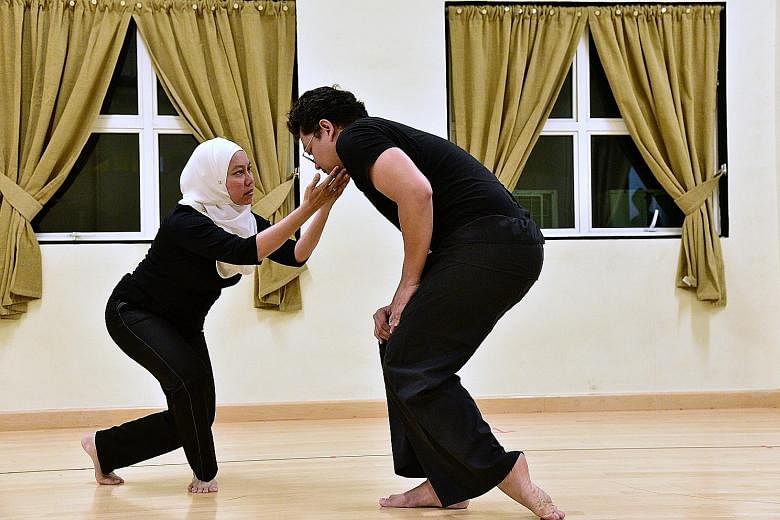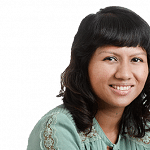Malay folk tale Si Tanggang is getting an update in a new dance production to focus on a mother's deep love for her child rather than the titular unfilial son.
Azpirasi Dance Group and Dian Dancers' show is hence titled Deruma after the mother instead.
"The character of Tanggang is negative, while the mother is a positive figure. We wanted to portray the more positive things to educate the community," says artistic director and choreographer Azmi Juhari, 52, from Azpirasi.
In the folk tale, a proud man is turned into stone after he returns to his village and refuses to acknowledge his poor mother.
The 90-minute tale, which will take place on Jan 26 and 27 at the Esplanade Theatre Studio, is the first major collaboration between Azmi's 16-year-old company and co-choreographer Abdul Yazid Juhuri's Dian Dancers, which was formed in 2003.
The two Malay dance companies have had to merge their different styles - Dian Dancers usually does traditional Malay dance, while Azpirasi favours more contemporary choreography.
-
BOOK IT / DERUMA
-
WHERE: Esplanade Theatre Studio, 1 Esplanade Drive
WHEN: Jan 26, 3 and 8pm; Jan 27, 8pm
ADMISSION: $25 from Sistic (call 6348-5555 or go to www.sistic.com.sg)
INFO: www.esplanade.com/deruma
Says Abdul Yazid with a laugh: "My dancers had a culture shock at first because Azmi had them do circuit training. After that, they said they had muscle aches everywhere."
What unites the two troupes is their "love of Malay dance and performing", he adds.
Many elements of the show will be traditional with a slight twist.
For example, instead of having a teluk blangah-style round neckline, the traditional Malay costumes will be cut in a cardigan style.
And the live music, which will be played on traditional instruments such as the accordion, gambus (lute) and gendang (Malay percussive instrument), will bear more of a "world music" feel under the stewardship of music director Azrin Abdullah.
Set in a kampung, the 18 dancers - eight from Dian Dancers and 10 from Azpirasi - will wield props that were more commonly used in the past, such as the cangkul (hoe), wooden fish traps and bamboo poles.
The character of Deruma will be played by None Md Zain, 47, an emcee and singer with Malay music ensemble Sri Mahligai. Tanggang will be portrayed by Norisham Osman, 31.
Besides dancing, they will recite poetry and lines written by playwrights Zulfadli Rashid, Siti Aisyah Kamin and Nur Afiqah Moktar.
The show will be performed in Malay and an English transcript will be provided for the audience.
None, a mother of three, had taken a break from dancing since 2004, but returned to the stage last July for a performance organised by the People's Association Malay Activity Executive Committees Council.
"My age does affect my stamina a little and the tough part is remembering all my lines. But I am excited," she says.
The collaboration has been a good experience for Abdul Yazid, 34, who says he "would never have dreamt of doing a production at the Esplanade".
"Maybe it was my inner voice saying I wasn't ready - but Azmi's motivation and the Esplanade's support have boosted my confidence in making this production a success."
The show is significant to Azmi too for a more personal reason - he lost his mother last August.
A symbolic Javanese ceremony called sungkaman is portrayed in one scene, where Tanggang will wash and kiss his mother's feet to ask for her forgiveness.
Azmi had performed the ceremony with his late mother. He says: "I kissed my mum's feet and asked for forgiveness. At that moment, I could feel the weight of all my sins.
"What happens in the story is something that is happening now. How many Tanggangs are there in Singapore? They might not turn into stone, but what will become of their lives?
"I decided to include this ceremony in Deruma as a reminder to the audience - if your mother is alive, she must be cared for better than you would gold."


